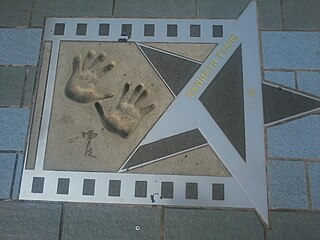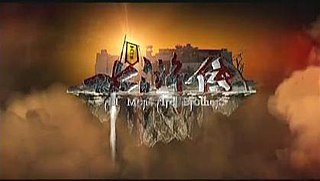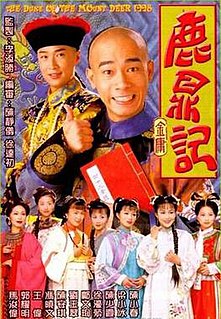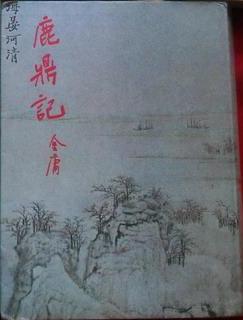This page is based on this
Wikipedia article Text is available under the
CC BY-SA 4.0 license; additional terms may apply.
Images, videos and audio are available under their respective licenses.

Ji Gong, born Li Xiuyuan and also known as "Chan Master Daoji" was a Chan Buddhist monk who lived in the Southern Song. He purportedly possessed supernatural powers, which he used to help the poor and stand up to injustice. However, he was also known for his wild and eccentric behaviour, and for violating Buddhist monastic rules by consuming alcohol and meat. By the time of his death, Ji Gong had become a folk hero in Chinese culture and minor deity in Chinese folk religion. He is mentioned by Buddhists in folktales and kōans, and sometimes invoked by oracles to assist in worldly affairs.

Kenneth Tsang Kong is a Hong Kong actor. Tsang's career has spanned 50 years and included a variety of acting roles. Tsang won the Best Supporting Actor Award at the 34th Hong Kong Film Awards in 2015.
Dicky Cheung Wai-kin is Hong Kong actor and singer.
Ng Man-tat is a Hong Kong actor originally from Fujian, China. He is a veteran actor in the Hong Kong film industry, with dozens of awards, including Best Supporting Actor at the 10th Hong Kong Film Awards for his role in A Moment of Romance.
The Return of the Condor Heroes, known in Chinese as Shen Diao Xia Lü, is a novel by Jin Yong. Alternate English translations of the title include The Giant Eagle and Its Companion and Divine Eagle, Chivalric Companion.

The Duke of Mount Deer 2000 is a Hong Kong-Taiwanese television series adapted from Louis Cha's novel The Deer and the Cauldron. It was first broadcast in 2000 in Taiwan and followed by subsequent broadcasts in other Asian countries.

Three Kingdoms is a 2010 Chinese television series based on the events in the late Eastern Han dynasty and the Three Kingdoms period. The plot is adapted from the 14th century historical novel Romance of the Three Kingdoms and other stories about the Three Kingdoms period. Directed by Gao Xixi, the series had a budget of over 160 million RMB and took five years of pre-production work. Shooting of the series commenced in October 2008, and it was released in China in May 2010.
The Xiaoli Feidao series is a wuxia novel series by Gu Long.

Royal Tramp is a 2008 Chinese television series adapted from Louis Cha's novel The Deer and the Cauldron. Produced by Zhang Jizhong and Huayi Brothers, the series consists of 50 episodes, filmed in high definition. The series was first broadcast on Jiangsu TV in China in 2008 and was subsequently aired on TVB in Hong Kong and other countries.
Herman Kwan Hoi-San was a Hong Kong actor. His English name was Herman Kwan. Kwan started off as a Cantonese opera actor in street theatre before joining New Voice Opera Troupe (新聲劇團). He also started singing for early Hong Kong film soundtracks and moved on to act in films, mostly adaption of opera in Cantonese. He became famous and acted in many lead roles. When Hong Kong films started to move towards Mandarin, Kwan's career faltered and joined TVB and acted in various roles. Directors and filmmakers rediscovered his talent and cast him in many supporting roles in films. In 2001, Kwan suffered a stroke and was left mute and paralysed. He died in 2006.
Sword Stained with Royal Blood may refer to:
The Book and the Sword may refer to:
Demi-Gods and Semi-Devils may refer to:

The Tale of Loyal Heroes and Righteous Gallants (忠烈俠義傳), also known by its 1883 reprint title The Three Heroes and Five Gallants (三俠五義), is an 1879 Chinese novel based on storyteller Shi Yukun's oral performances. The novel was later revised by philologist Yu Yue and republished in 1889 under the title The Seven Heroes and Five Gallants (七俠五義), with the story essentially unaltered.

The Return of the Condor Heroes is a Taiwanese television series adapted from Louis Cha's novel of the same title. It was first broadcast on TTV in 1998 in Taiwan.

Ode to Gallantry is a Chinese television series adapted from Louis Cha's novel of the same title. The series was first broadcast on NMTV in China in 2002.

All Men Are Brothers is a Chinese television series adapted from Shi Nai'an's Water Margin, one of the Four Great Classical Novels of Chinese literature. The series is directed by Kuk Kwok-leung and features cast members from mainland China, Taiwan and Hong Kong. The series was first broadcast on 8TV in March 2011 in Malaysia.

The Three Heroes and Five Gallants is a 2016 Chinese television series produced by Huayi Brothers with Tianxing Yiyuan Entertainment (天星亿源影视), based on the 19th-century classic novel of the same name. Starring Chen Xiao, Yan Yikuan and Zheng Shuang, the series premiered on February 17, 2016 on Anhui TV.














